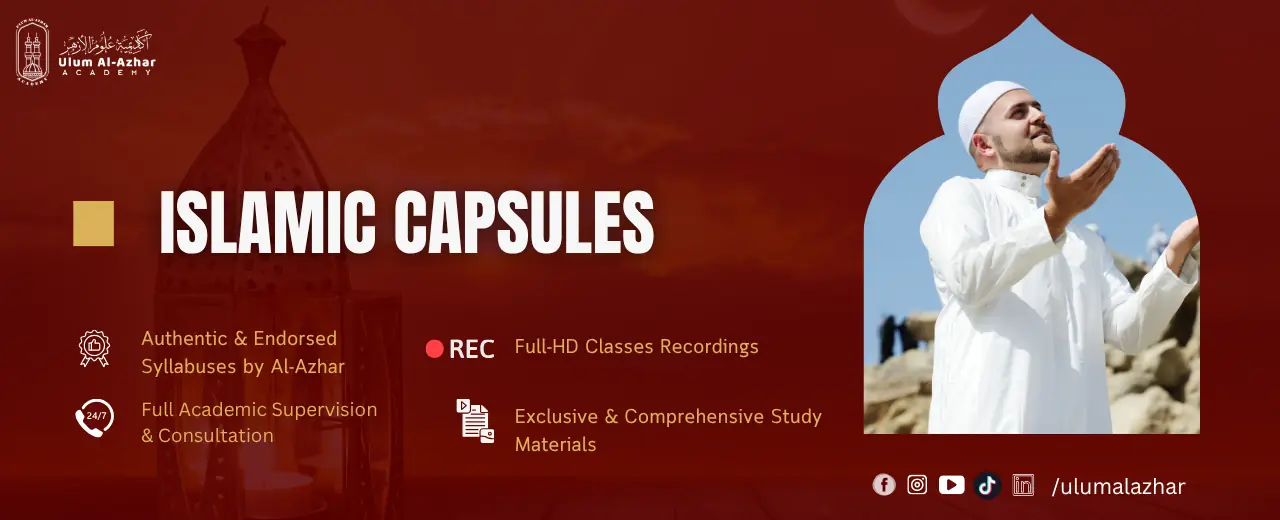
Bid’ah Meaning in Islam: Types, Examples, and Scholarly Views
How can you determine if this act is a Bid’ah or not? In Islamic teachings, the idea of Bid’ah is a topic that gets a lot of attention, as it comes to new practices or rituals related to religion. Many Muslims wonder: what does Bid’ah mean in Islam? Is every new thing automatically considered a bad innovation, or are there different kinds of innovation? Scholars have given detailed explanations to help Muslims understand the difference between acceptable innovations and those that go against the Qur’an and the teachings of the Prophet Muhammad.
These lines will explain Bid’ah meaning in Islam, the different types of Bid’ah, examples from history, how to tell the difference between cultural habits and religious innovation, and the guidance from scholars, especially those from the Azhari school of thought, on how to deal with this important issue.
Understanding Bid’ah Meaning in Islam
The word Bid’ah in Arabic linguistically means something new or unprecedented. In the Qur’an, Allah says: “Badi’u al-samawati wal-ard” (He is the Originator of the heavens and the earth) [Al-Baqarah 117]. Here, the root conveys the meaning of creating something without precedent.
From an Islamic law point of view, Bid’ah means adding something new to the religion that wasn’t there when the Prophet Muhammad ﷺ lived, and that isn’t found in the Qur’an or the Sunnah. Scholars say that the problem with Bid’ah is when someone presents a new idea as if it’s part of the religion, which can change how worship or beliefs are done.
But not all new things are bad. Some new ideas are not good, but others can be good if they help achieve the goals of Sharia, which are called Maqasid al-Sharia.
Connect with Al-Azhar-certified Sheikhs from Egypt for a free consultation to start your personalized.

Types of Bid’ah: Good vs Blameworthy
The Prophet ﷺ said, as narrated by Muslim:
“Whoever introduces into this matter of ours (Islam) that which does not belong to it, it will be rejected.”
The meaning of this profound prophetic statement is that if someone introduces something that is in accordance with Islam, it is accepted—just as:
– when our master ʿUthmān رضى الله عنه introduced the second call to prayer (adhan) on Friday,
– or when our master ʿUmar رضى الله عنه gathered the people to pray Tarawīḥ in congregation.
These were regarded as good practices (sunnah hasanah). This is how the imams and the well-followed schools of jurisprudence understood it, and it is the practice upon which Muslims have acted throughout the generations without objection of scholarly weight.
If we were to deny this principle, people’s lives would become constrained, and they would be forced to abandon many aspects of their daily affairs and livelihoods. Scholars therefore divided innovations (Bidʿah) into categories: some are permissible, some recommended, some forbidden, some disliked, and some obligatory.
Some scholars deviated in this matter and said that every Bidʿah is evil. This contradicts the words of the Prophet ﷺ:
“Whoever initiates in Islam a good practice (sunnah hasanah) will have its reward and the reward of those who act upon it… and whoever initiates in Islam a bad practice (sunnah sayyi’ah) will bear its burden and the burden of those who act upon it…” (Narrated by Muslim).
Accordingly, the intended meaning of the Prophet’s ﷺ statement, “Every innovation is misguidance”—also narrated by Muslim—is that it refers to those innovations that contradict the established principles of Sharia and oppose the true methodology of Islam, not to everything that is newly introduced.

So, Scholars classify innovations into two main categories to help clarify the Bid’ah meaning:
1. Bid’ah Hasanah (Good Innovation)
This refers to new practices that are not directly mentioned in the Qur’an or Sunnah, but which serve a beneficial religious purpose. For example:
– Establishing Islamic schools and universities.
– Using microphones for prayer calls (adhan) in large cities.
– Placing lines on mosque carpets to help worshippers align the rows.
Imam al-Shafi’i famously said: “Anything introduced which contradicts the Qur’an, Sunnah, consensus, or the reports from the Companions, is an innovation of misguidance. But anything new that brings good and does not contradict, is praiseworthy.” This shows the nuance in Bid’ah meaning—not all innovations are rejected.
2. Bid’ah Sayyi’ah (Blameworthy Innovation)
This refers to innovations that alter acts of worship or introduce beliefs that oppose Islamic principles. For instance:
– Specifying the recitation of certain chapters of the Qur’an for a particular purpose—such as reciting Surah Al-Waqiʿah for increasing sustenance or Surah Ya-Sin for healing—has no basis from the Prophet ﷺ and was not approved by any of the scholars.
– Likewise, celebrating the Prophet’s birthday in ways that contradict Sharia, such as singing, music, or gathering for dhikr with a fixed number of repetitions, are also considered impermissible practices
– Wearing the symbol of the ‘evil eye’ for protection against envy is not merely considered a Bid‘ah, but scholars have classified it as a form of “shirk”.
Historical Examples of Innovation in Religion
Imam al-Ghazali, known as Hujjat al-Islam (may Allah be pleased with him), said : “Not every innovation is prohibited; rather, the prohibited Bid‘ah is that which contradicts an established Sunnah and abolishes a matter of the Shari‘ah. To better grasp the Bid’ah meaning, history provides many instructive examples of good bid’ah:
– The Compilation of the Qur’an: Although not done during the Prophet’s ﷺ lifetime, the caliphs saw the urgent need to preserve the Qur’an. This is a prime example of Bid’ah Hasanah, because it safeguarded religion.
– Tarawih Prayers in Congregation: The Prophet ﷺ prayed Tarawih in congregation a few nights, but later stopped to avoid making it obligatory. During the caliphate of Umar ibn al-Khattab,when it was established among the people that it is not obligatory, he revived it in congregation so that he may earn the reward of performing a Sunnah established by the Prophet ﷺ.
It is narrated from the noble Tabi‘i, ʿAbd al-Rahman ibn ʿAbd al-Qari, who said: “I went out with ʿUmar ibn al-Khattab (may Allah be pleased with him) one night in Ramadan to the mosque, and the people were scattered in groups. A man would pray alone, and another would pray with a small group following him. So ʿUmar said: ‘I think if I gathered them all behind one reciter, it would be better.’ Then he resolved to gather them behind Ubayy ibn Kaʿb, Then I went out with him another night, and the people were praying behind their reciter. ʿUmar said: ‘This is a good innovation
These examples confirm that understanding Bid’ah meaning requires context and scholarly wisdom, not blanket rejection of all new practices.

Difference Between Culture and Religious Innovation
One of the common confusions Muslims face is differentiating between cultural practices and religious innovations. This distinction is essential in understanding the Bid’ah meaning:
– Cultural Practices: Traditions such as local foods, clothing styles, or wedding customs are not considered Bid’ah as long as they do not contradict Sharia. For example, celebrating a national day or wearing traditional attire does not fall into the category of religious innovation.
– Religious Innovations: These are practices introduced into worship with the claim that they are acts of devotion. For example, specifying certain acts of worship in ashura day without evidence from revelation.
Thus, culture is not automatically Bid’ah. Scholars emphasize that only practices falsely attributed to religion fall into the definition of innovation.
Guidance from Scholars on Avoiding Bid’ah
Scholars provide balanced guidance on how to avoid blameworthy innovations while embracing beneficial advancements. Their teachings on Bid’ah meaning can be summarized as follows:
Hold tightly to the Qur’an and the teachings of the Prophet Muhammad ﷺ: Every religious action should have a clear proof from these main sources.
Consult the scholars: People who are not scholars should not quickly say something is an innovation without asking scholars.
Know the main goals of Islamic law: Some new practices that help protect and spread the religion, like Islamic education, are considered good and beneficial.
Don’t take an extreme position: Some groups today call every new thing an innovation, while others don’t care about any limits. The right way is to accept good new practices and reject bad ones after consulting the scholars.
What is allowed in Islam and what is not, you can know this through our ISLAMIC CAPSULES sessions.

Conclusion
The Bid’ah meaning in Islam does not mean refusing everything new. It is more about protecting the religion from being changed or misunderstood, while still allowing for good changes that help people. New ideas can be either good or bad. For example, starting Islamic schools in the past were helpful innovations that were not wrong.
What is important is knowing the difference between traditions that are part of culture and those that are religious changes. It is also important to ask knowledgeable scholars for advice. This careful way of thinking helps Muslims keep the true meaning of their faith alive, while also meeting the needs of their time and place.
Begin your unique Islamic learning path with a free consultation led by Al-Azhar-certified Sheikhs from Egypt.
FAQs
What is the linguistic Bid’ah meaning?
Linguistically, Bid’ah means something new, unprecedented, or without prior example.
Does Bid’ah always mean misguidance?
Not necessarily. Bid’ah meaning includes both praiseworthy and blameworthy innovations, depending on whether they align with Sharia.
Is using modern technology in worship a Bid’ah?
No. Tools like microphones, apps for prayer times, or online Qur’an study platforms are considered Bid’ah Hasanah since they facilitate religious duties.
How can a Muslim avoid Bid’ah?
By following the Qur’an, Sunnah, and the guidance of trustworthy scholars, and avoiding self-interpretation in religious matters.
